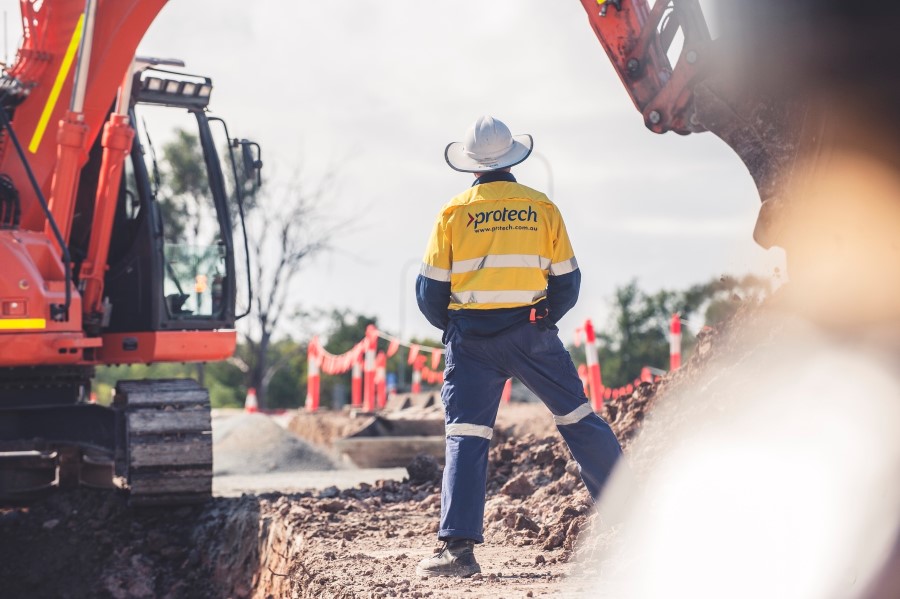
A leading national workforce provider is using technology-enabled neuroscience to dramatically improve safety.
Since adding the neurotech assessment tool to its suite of screening processes, Protech recorded a 60% drop in recordable safety incidents in a six-month period.
“The results we’re seeing are phenomenal,” Natalie Stewart, Group General Manager – People & Culture, said.
“We're seeing a massive reduction in the number of incidents.
“The traditional measures — loss time injury frequency rate, total recordable injury frequency rate — have both dropped incredibly. Specifically, 60% in six months.
“The other thing that also stood out in the data was that we’re seeing a significant reduction in the severity of incidents. So, when people do have an incident, it’s much less likely to cause them ongoing issues. They’re not out of work for as long, which means a lot, obviously, for our people, as well as our costs — claims, premiums and workers compensation — have dropped. We’ve had huge savings.”
The Cernova platform helps to measure and predict employee mental wellbeing and their propensity for safe behavior. Now Protech can see what was previously invisible, with simple dashboards that show a repeatable, scientific perspective of employees’ resilience and their likelihood for safety-conscious behaviour.
“As a result, we can make more informed business decisions about hiring, team composition and suitability for projects,” Ms Stewart said.
The Cernova technology was introduced as part of Protech’s formal screening process in January, following a pilot program the year before in Queensland.
“We were hitting this point where we just couldn’t get the safety incidents in our business below a particular level,” Ms Stewart said.
“Dating back several years, our Managing Director Marc Meili was really keen to find something that would help us drive our safety performance further, hurt people less and enable us to break through that safety plateau barrier and be a point of difference.
“He is very future-focused and is constantly looking outside of our industry and at things happening around the world. Given that we had already reached our own safety plateau, he knew that the solution had to be about gaining visibility into the invisible – people’s mental wellbeing and likelihood for safety, for their sake as well as ours and our clients.”
It was Mr Meili’s goal to enhance Protech’s 10-step screening process, Quality People Every Time, used to assess people’s job fit and safety attitude, intent and understanding.
“He said: ‘For us, there are three things that we can control in the labour hire space when it comes to safety: the clients we work with, the kinds of sites we put our people on and the selection of people that we put forward for our clients.
“He said: ‘We need more than that. We need to really know quite quickly how people are going to react subconsciously or unconsciously in a safety situation.”
Ms Stewart said the neuroscience data had reinforced Protech’s belief that the business was on the right track with safety.
“This is not meant to replace traditional safety management; it is to augment it and take it to the next level. We’ve brought this in as an additional way to ensure that the people we put into those environments are going to be able to operate safely in that space,” she said.
“It informs us how we proceed with the employee screening. For example, with resilience, just because someone’s in a lower category doesn’t mean they’re automatically discounted. It means we explore that a lot more in the interview. We’ve got a series of questions where we talk to them about the kinds of pressures that they might experience in the role and on site.
“It really helps us to understand if a particular job is the right fit for that individual. It’s the same with safety. Just because someone has a safety result that’s not in the normal range for the distribution doesn’t mean that the environment they’re going into needs someone like that. It depends on the role.
“Our purpose at Protech is to be a positive influence in people’s lives and we believe this program helps us achieve that by helping us support our field employees in terms of improving their resilience and safety behaviors on site.
“It’s a small part of a long process and it’s received positive feedback from clients and employees alike.
“The common comment that we get from the employees we place is that the whole process is extremely thorough and that we really do take the time to get to know them and make sure we’ve got the best fit for them, as well as for the client.
“The clients, meanwhile, are really impressed as they, too, are benefitting from Protech providing them a safe and resilient workforce.”
Protech has been a member of Ai Group for 14 years.
“We’ve grown as a business with Ai Group. It's been the kind of support that we’ve always had in our corner, whether it’s engaging with the legal team when we need that extra level of advice or using the Workplace Advice line, which is something we use regularly. The HR Resource Centre on the website is fantastic. Beyond that, the way Ai Group fosters networks, both in the safety and HR spaces, is something I really value." — Natalie Stewart, Group General Manager – People & Culture, Protech.

Wendy Larter is Communications Manager at the Australian Industry Group. She has more than 20 years’ experience as a reporter, features writer, contributor and sub-editor for newspapers and magazines including The Courier-Mail in Brisbane and Metro, the News of the World, The Times and Elle in the UK.